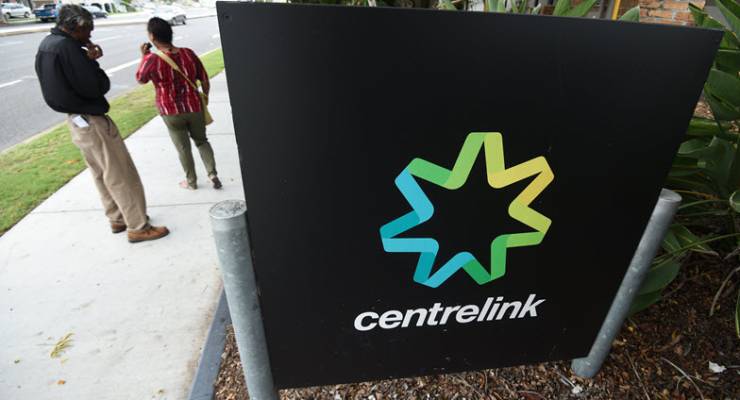
Last week, I found out at Senate estimates that more than 104,000 people have dropped out of Jobactive — the government’s employment services program.
To be clear: this means that more than 104,000 Australians did not re-engage with the system after having their income support suspended under the Targeted Compliance Framework’s “demerit point” system. Many of these people would have made the choice to go without any income at all, rather than engage with the notoriously punitive and difficult program.
Dropping out of the system is not a choice that people make lightly; we should really want to know why.
It’s clear that the government doesn’t know what has happened to these people. The employment department half-heartedly suggested in estimates that these people left the program because they must now have jobs.
This is a dangerous (and, for the government, very convenient) assumption, particularly since we know that there just aren’t enough jobs available for the number of unemployed people in this country.
Out of the 104,480 people no longer on any income support payment, 11,849 are First Nations peoples, 13,720 are homeless and 13,720 are disabled. Half of the people who have dropped out of the system are under 30.
As feared, the “demerit point” system is greatly impacting the most vulnerable in our community.
If someone is having difficulty with their employment program, if they are not meeting the expectations of their employment plan, it would be common sense to look at the social barriers they might be facing and ask: what is stopping them from succeeding? What can we do to help? It’s a rather minimal expectation given that the government has pumped more than $7 billion into Jobactive.
But, instead of offering any real support or understanding, this system automatically breaches and penalises people.
Clearly, our employment services system is failing them. We are effectively spending billions on a program that is hurting people and exacerbating their stress and disadvantage.
All the while, the government continues demonising those on income support and reminding them of their “obligations” to the taxpayer. But what about our obligations, as a community, and as a society, to ensure that people are not living in poverty and have access to the support they need?
What about our mutual obligations to each other? What about our government’s obligations to ensure everyone in Australia has what they need to live a decent life?
I also found out at estimates that, of those who received three demerit points, 43% did not have a job plan that was suited to them. 64% of these people had errors in their job plan that were not their fault — an extremely high rate of error.
This group of people are being deliberately set up to fail. They have to go through the stress of the strict welfare compliance system, and cop punishments and payment suspensions, because the system cannot adequately meet their needs.
The government should have serious questions about why we are seeing such poor outcomes. People should be outraged that billions of dollars are being used to fund employment service providers who cannot even develop job plans properly.
What’s so deeply frustrating about this government is that they’ve seen the evidence: they know that poverty stops people getting work, that vulnerable communities need specialised support, but they ignore the data and choose to continue the cycle of poverty and disadvantage.
Jobactive treats people like robots, numbers in a system, cash cows for private contractors. This punitive approach to income support hurts people and ends up costing us all more in the end.
Ultimately, community organisations, charities, and state and local governments have to pick up the pieces. That’s why we’ve seen so many of these groups calling for an increase to Newstart.
In estimates, the government could not demonstrate that its employment service program is good for people and good for the community; where is the accountability for Jobactive’s failures?
We might have to start calling Jobactive “corporate welfare” until employment service providers and the government can prove that they can do their jobs and spend public money properly.
As it stands, the government’s “tough love” approach is really not love at all; instead, it continues to deliver services with a side of contempt.
Rachel Siewert is a Western Australian senator for the Greens.
Crikey accepts submissions from all sides of politics, which are in keeping with our editorial standards.








Like so many of this government’s “budget saving measures” – making “the system” so difficult to qualify for, or navigate to qualification.
Collateral damage : savings? “Does not compute!”
“What’s Government for, if not to make more miserable, the lives of those among us less well off?”
I think there is an answer out there, but you’ll need VC level courage to do it. Universal Basic Income. Unleash the naysayers, trolls, bigots and blusterers! Then when the hullabaloo dies down and Alan et al. grow hoarse or succumb, work it through, look at the experiments and appreciate that continued gross inequality will simply not work and there is no trickledown. Revelations and advancement come when brave people stand up and say ‘Enough, this is not working, time for fundamental change!’
So mission accomplished, then?
Yep, prosperity “christianity” in action.
I remember a mercifully short involvement with the old CES during the recession we had to have. It was embarrassingly useless but at least you only had to register once then ignore it. They axed CES and promised a brave new world of jobless support etc.
By the figures here it now costs about $10k per person per year to perform a similarly useless service now with added harassment and impoverishment features. I suggest give each Newstarter an extra $8k a year and go back to the old job ad cards on the wall. Either that or separate these agencies from any influence over Newstart payments but only pay them anything when they find people a job.
This is of course kryptonite to this make work corporate welfare scheme. Everyone knows if you want a job you have to find it on your own unless you take the really shitty jobs that can only be filled by force feeding them through these agencies. Like our offshore gulags a complete waste of money and counterproductive at the same time. The perfect blueprint for modern public administration.
Well said. This is exactly the scenario I have witnessed over quite a few years but much worse over the 6 years this Government has been in charge. ‘Corporate Welfare’ I like that! There is a lot of it about.